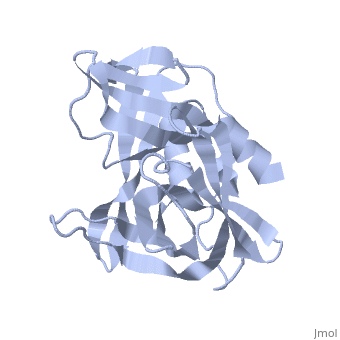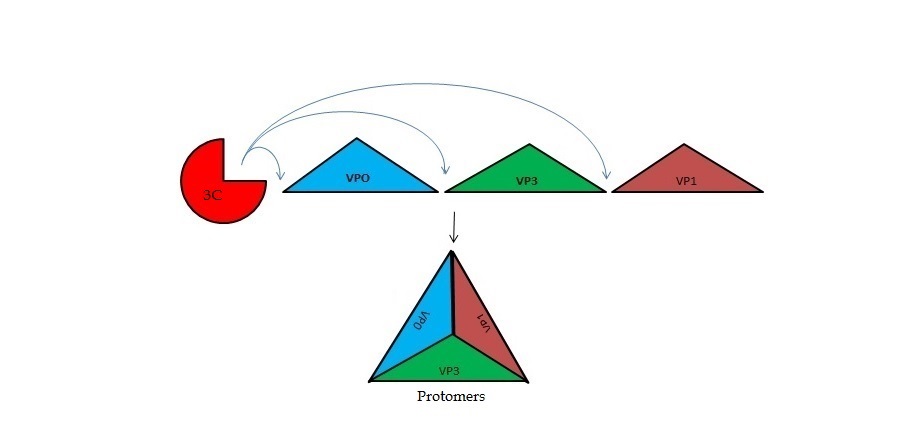We apologize for Proteopedia being slow to respond. For the past two years, a new implementation of Proteopedia has been being built. Soon, it will replace this 18-year old system. All existing content will be moved to the new system at a date that will be announced here.
FMDV 3C
From Proteopedia
(Difference between revisions)
| Line 8: | Line 8: | ||
== Disease == | == Disease == | ||
| - | + | FMDV, the etiologic agent of Foot-and-Mouth Disease (FMD), affects a variety of cloven-hoofed animals in different parts of the world, but to date is not present in North America or Australia. FMDV is extremely infectious and displays high adaptability as well as short incubation times. This virus exists in the form of seven different serotypes (A, O, C, Asia-1, and South African Territories - SAT - 1, 2, and 3) and it has innumerable subtypes. These factors, in conjunction with ecological dynamics of livestock, result in a rapid, widespread, and devastating disease that causes exorbitant economic losses for the agricultural industry. FMDV outbreaks impact local and global food-animal markets as trade regulations restrict exportation of products from FMDV endemic areas, stressing the need for a reliable diagnostic tool and effective, yet safe, vaccinations. FMDV is also on the “A” list of infectious diseases of animals of the OIE, the world organization for animal health which means that it is a transmissible disease that has the potential for very rapid spread and is of serious socioeconomic importance. | |
== Relevance == | == Relevance == | ||
Vaccines against FMDV are used where the disease is endemic, however, vaccination is not permitted in many countries due to the potential risk for the escape of FMDV. Therefore, there has been interest in producing empty capsid particles for use of potential vaccines against FMD. | Vaccines against FMDV are used where the disease is endemic, however, vaccination is not permitted in many countries due to the potential risk for the escape of FMDV. Therefore, there has been interest in producing empty capsid particles for use of potential vaccines against FMD. | ||
Revision as of 14:02, 15 July 2015
FMDV 3C Protease
| |||||||||||
References
references [1]


